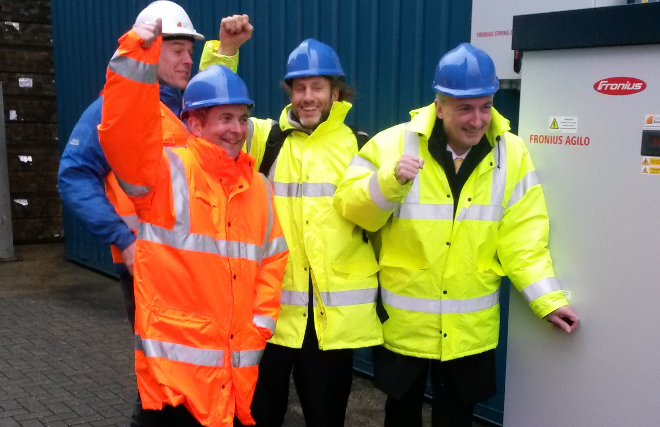‘Plug in Public Power’, a new report from left-aligned think tank Common Wealth sets out a blueprint for Labour’s ‘Local Power Plan’. Author Nick Pearce says local democracy in generation would help win support for renewables and give communities a genuine ownership stake.
Community-owned low carbon power thrives in much of continental Europe driven by helpful policies and political will, the report points out. It praises Germany & Denmark; as half the latter’s wind generation capacity, it says, is in local control.
In contrast, growth in Britain’s community-owned energy – either volunteer-led or municipal – has fallen, from 81% in 2016-17 to just 2.4% in 2020-21, the report notes.
Community Energy England is now collecting data from around 400 groups for its annual ‘State of the Sector’ report, a key influencer read by civil servants, ministers and politicians.
Common Wealth notes that Labour is pledged to allocate up to £3.3 billion to the party’s Local Power Plan, with funds distributed to municipal, co-operative and community energy projects.
The think tank’s study outlines an ambitious agenda, describing how community renewables could help to win local support for new energy infrastructure, and give communities a genuine stake in the UK’s clean power future.
The report argues that Labour’s nationalised creation GB Energy should co-invest with municipal, co-operative and community-owned energy providers using a ‘public-common partnerships model’, in which local accountability is coupled with wider public coordination of the energy transition.
Arguing against the report’s advocacy of municipal electricity and gas are costly failures, such as Bristol Energy, dead in 2021 owing £36 million to municipal taxpayers, and Nottingham’s Robin Hood Energy. The latter collapsed after five years in 2020, with debts of £34 million. Nottingham City Council’s £16 million exposure contributed, critics argue, to the authority’s ‘effective’ bankruptcy three years later, last November. I
Mimicking the design of Joe Biden’s Inflation Reduction Act, the Common Wealth report argues Labour’s £3.3 bn for its Local Power Plan should be “uncapped”. If there is demand for viable projects that would decarbonise and cut bills, then the capital investment should be increased, Pearce argues .
The report echoes other voices in seeking planning reform, putting an end to a minority of objectors holding up new energy projects. Regional boards should pool generation and management resources, prevent surpluses being concentrated in hot spots.
The report comes as growth in the community sector stalls. The 2022 State of the Community Energy Sector report from revealed 65% more community energy organisations had stalled projects than in 2020. Growth in community-owned electricity capacity has been stunted, falling from 81% in 2016-17 to 18% in 2018-19 and 2.4% in 2020-21.
Factors holding the sector back have included the Conservatives’ continuing de facto ban on new onshore turbines in England, planning curbs, financing costs, and a perceived weakening of Rishi Sunak’s support for the sector.
The report contrast UK co-ops’ plight with Germany’s 900-plus success stories. Sustained policy help given by the country’s town and regional councils, has contributed to German co-ops owning nearly 50% of onshore wind generation.
Germany’s nationally accountable infrastructure bank invests as much as 40% of an €80 billion annual fund on environmental projects that municipalities and communities can access.
Common Wealth argues the UK Infrastructure Bank could play a similar role to KfW, Germany’s self-described ‘bank for responsibility’ and help capitalise community energy projects.
The ginger group’s report comes after its separate study, which set out a pathway for GB Energy to become a clean energy giant, capable of driving the UK’s energy transition.
Nick Pearce, a research fellow at the think tank, wrote ‘Plug in Public Power’.
He said: “Endless bureaucratic queues and anemic investment in the UK have stifled what should be a thriving sector that brings jobs, lower power bills, energy security and a voice to every corner of our nation.
“It’s time to take back control by bringing ownership home, away from far-off business interests and back to the people who use and produce energy.”
Keir Milburn, co-director of co-operative investment clearing house Abundance Investment, added:
“Using public-common partnerships as the means to implement the Local Power Plan would give communities control over the surplus each enterprise produces. These can be used to help initiate new green projects which in turn could create their own surplus for reinvestment. In this way a self-expanding dynamic could be introduced into the Green Transition, massively accelerating it while also expanding and strengthening democracy.”
Interest declared: the author invests actively in several local British energy co-operatives. He has contacts within German energy co-ops.




